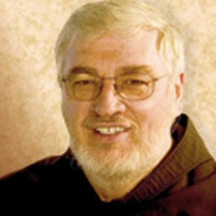
Readings:
Reading I: Isaiah 66: 10-14c
Psalm 66:1-3,4-5, 6-7,16,20
Reading II: Galatians 6:14-18
Gospel: Luke 10:1-12, 17-20
What is God like? How can we speak of God? Philosophers and theologians tell us that we can speak of God only by using analogies – figures of speech– since language is not capable of speaking of God as God is. We must be content with using imagery that we can understand, but as we use these images and analogies, we must remember that none of them captures the reality of God completely. The images we use are imperfect because they arise from our limited experience and intellect.
The Bible is the source of many of the most familiar images of God. Certainly, the most familiar of these is God as father — an image found in both Testaments. The liturgy uses that image in many of the prayers at Mass, in imitation of Jesus who taught his disciples how to pray using the words we now know as the Lord’s Prayer: Our father, who art in heaven . . .”
Today’s first lesson from the book of Isaiah uses another image – one that is no less compelling but one that is found only rarely in the Bible: God as a mother: as a mother comforts her child, so will I comfort you . . . (v. 13). The prophet uses this image to speak of the bond between God and God’s people. It underscores the affective dimension of that bond. The image of a mother caring for her baby tells of the love that binds God to us. The message that this imagery conveys was particularly relevant for the Jewish people who were trying to reconstitute their lives in their ancestral homeland in most difficult circumstances. Some thought that God had abandoned them, but today’s text affirms that the love that binds God to Israel is like that of a mother to her infant. Earlier in the book, the prophet employs the same image to speak of the unbreakable bond between God and the Jewish people: “Can a woman forget her nursing child and show compassion for the child of her womb. Even of these may forget yet I will not forget you” (Isa 50:14-15).
As we read the prophet’s words – especially in connection with today’s gospel lesson about the mission of the seventy-two disciples — we cannot help but reflect on the ministry of women in the Church who proclaim the gospel and enable us to experience God touching our lives. Women religious created and sustained an educational system from pre-school to university-level that ensured the maintenance of Catholic identity among young people and produced a well-educated citizenry that serves both Church and society. They also established a health care system that cared for all people in need. Today the reach of women religious extends far beyond schools and hospitals. They have been leaders in the civil rights, women’s rights, peace movements. They serve the institutional church on every level from the parish to Vatican dicasteries.
Lay women have moved from the periphery to the center of church life. There is hardly a parish in the United States that can sustain even a minimal level of service to their congregation without the ministry of women. They serve as liturgical ministers. They prepare children and adults for the sacraments. They serve on parish councils. They visit the sick, console the grieving, and feed the poor. Women also serve at the highest levels in the administration of Catholic dioceses and other Catholic institutions. Women are among the leading theologians, biblical scholars, and canon lawyers in the United States. Women serve as hospital chaplains, catechists, pastoral associates, spiritual directors.
What is God like? Both men and women, both fathers and mothers can help us experience God touching our lives. Today, the “seventy-two others” appointed by the Lord include women who minister to us Spirit and life.